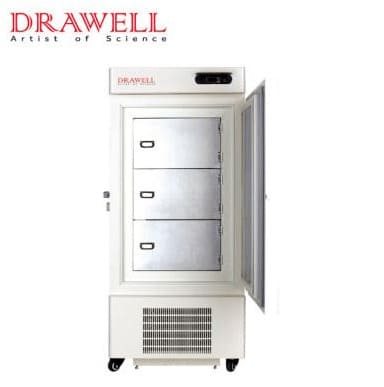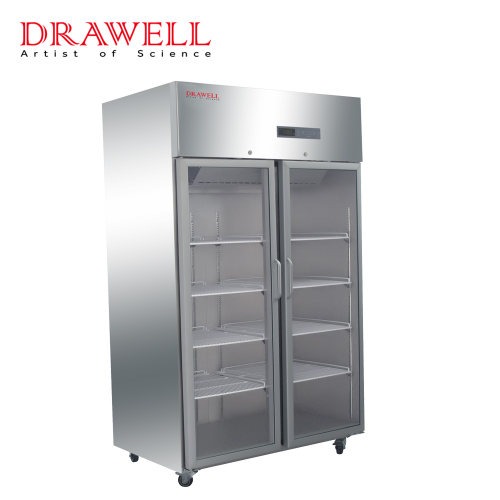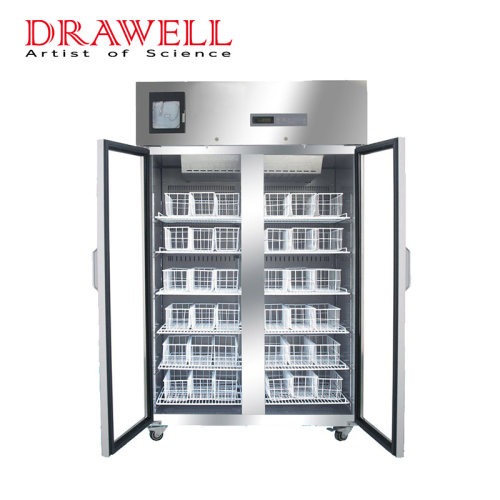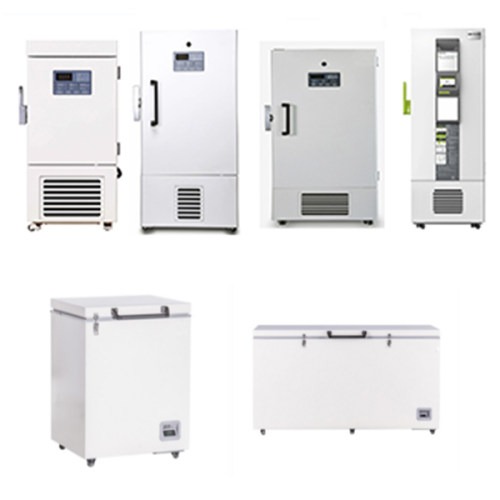Difference between Laboratory Refrigerators and Household Refrigerators
Laboratory refrigerators are generally used to store vaccines, medicines, and chemical reagents. These samples have a constant storage temperature requirement. Therefore, the requirements for storage devices for vaccines, medicines, and chemical reagents should be “incubators” with a small temperature range.
A household refrigerator is a low-temperature storage device that uses direct cooling. It is generally a combination of refrigeration and freezing. It shares a compressor. There is only one controller in the refrigerator to adjust the temperature. Its main function is to keep food fresh. Temperature stability requirements are not high so domestic refrigerators will have problems such as temperature fluctuations and internal temperature uniformity.
Refrigerator manufacturers of major brands will indicate in the instruction manual of household refrigerators that it is only suitable for storing food and cannot be used for other purposes, such as storing blood and products, medicines, biological products, chemical reagents, technical documents, etc.

What are the hidden dangers of using household refrigerators as laboratory refrigerators?
At present, some laboratories may still use household refrigerators as laboratory refrigerators. With the stricter and stricter inspection requirements for GMP certification, inspections are becoming more and more intensive, and the requirements for refrigerators used in laboratories are also getting higher and higher. Take refrigerator temperature monitoring as an example. Household refrigerators can only use built-in thermometers, which are manually recorded by laboratory personnel at regular intervals. To sum up, the following problems will be encountered:
1. The temperature fluctuation of the refrigeration equipment cannot be known at the first time, and cannot be dealt with in time, resulting in damage to the items.
2. The refrigerator adopts the direct cooling method, the internal temperature is unbalanced, the top is cold and the bottom is hot, causing damage to the items.
3. Manually record temperature data, which is inaccurate, not intuitive, prone to errors and omissions, and not convenient for long-term storage.
4. Equipment usage and performance cannot be viewed and analyzed intuitively
5. There is a potential explosion hazard for flammable and explosive chemical reagents stored in the refrigerator.
Why use a professional laboratory refrigerator?
Professional laboratory refrigerators are generally single-refrigeration or single-freezing, which is convenient for precise temperature control, and refrigeration refrigerators all adopt air-cooled refrigeration methods to ensure the balance of the internal temperature of the refrigerator. In layman’s terms, the temperature of each position inside the refrigerator is the same.
Professional laboratory refrigerators are designed with functions such as temperature display, temperature data recording, and a temperature alarm to meet GMP inspection requirements. Explosion-proof refrigerators in laboratory refrigerators are specially used to store flammable and explosive items to prevent flammable and combustible. Meanwhile, these laboratory refrigerators can ensure the safety of personnel and laboratories.

Drawell – Experts in the refrigeration industry
Drawell is a China laboratory refrigerators manufacturer, established in 1999, and began manufacturing laboratory refrigerators. With its leading technology and professional technology for refrigerator refrigeration, it focuses on invention, innovation, design sense, and technological breakthroughs, and is deeply cultivated in professional laboratories.
Refrigerators, specially designed for laboratories, tailor-made refrigerators for laboratories, Drawell has now become the preferred brand of laboratory refrigerators. Refrigerators, specially designed for laboratories, tailor-made refrigerators for laboratories, Drawell has now become the preferred brand of laboratory refrigerators. Here are some professional laboratory refrigerators in the following:
-86℃ Laboratory Refrigerator
This laboratory refrigerator includes a vertical refrigerator and a horizontal refrigerator. The capacity of the laboratory refrigerator can be 58L – 838L so you can have a lot of choices. The temperature range is from -40℃to -86℃.
4℃ Laboratory Refrigerator
This laboratory refrigerator is also called 4℃ Blood Bank Refrigerator. The effective capacity is 500L. The temperature range can reach 4±1°C. This laboratory refrigerator has an alarm system to ensure your safety.
2-8℃ Laboratory Refrigerator
This laboratory refrigerator is high-precision. The temperature range can reach 2~8℃. The capacity of these laboratory refrigerators is 100L – 1500L. The refrigeration system contains a forced air cooling system and auto defrost type, etc.



